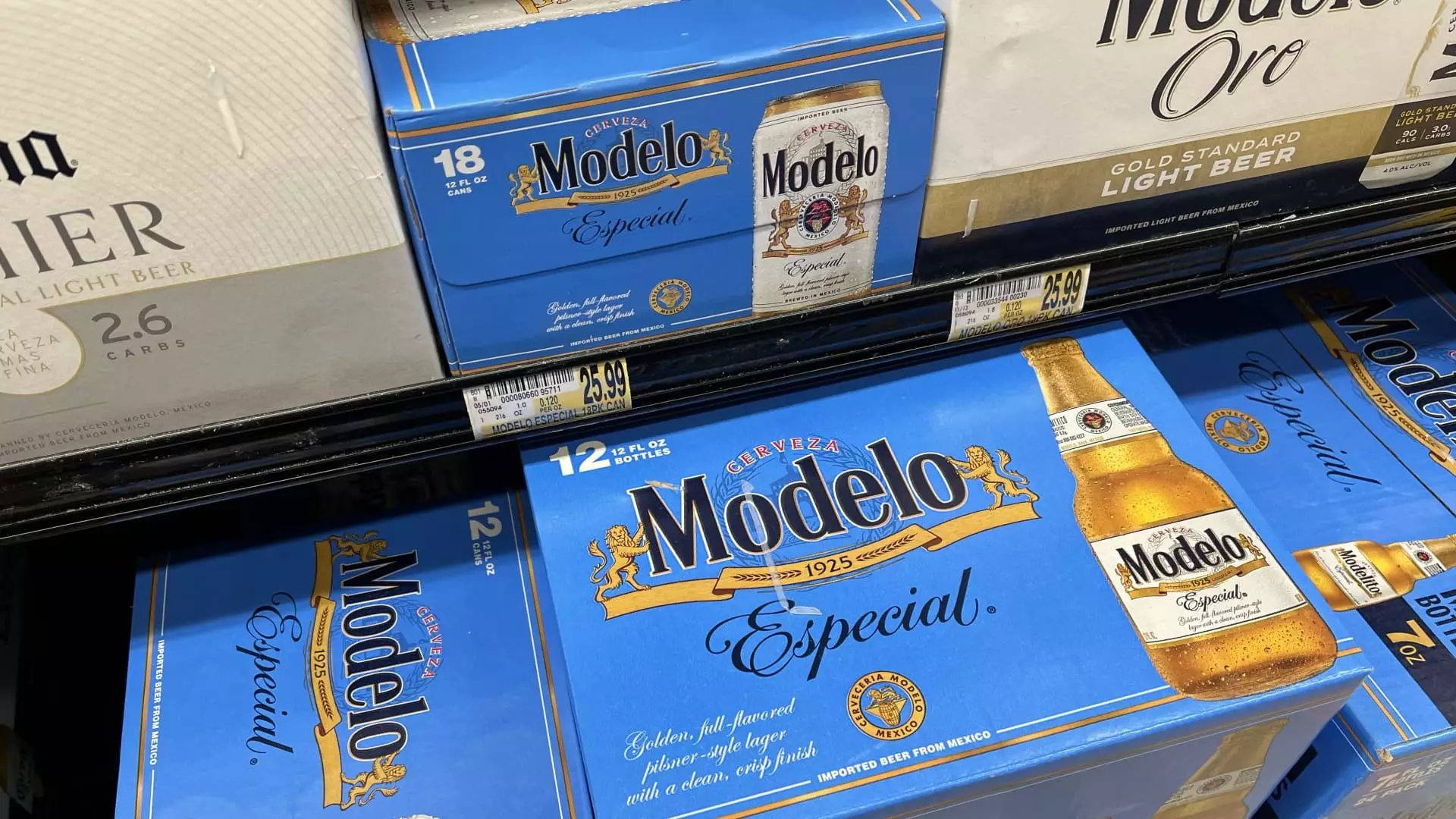Constellation Brands is grappling with a troubling forecast for fiscal 2026, signaling serious concerns about its robust beer business at a time when tariffs threaten to destabilize its market position. The recent 25% tariff imposed by the Trump administration on imported canned beer and aluminum products represents more than just a financial hurdle; it indicates a political climate that favors protection over partnership. While discounted tariffs may provide temporary relief to some industries, they leave beverage companies exposed to unnecessary challenges, particularly those like Constellation that heavily depend on imports from Mexico.
The ‘America First’ approach might arguably be beneficial to some sectors, but for companies like Constellation that import a significant portion of their beer, it is a bitter pill to swallow. With the company reporting lower expected earnings and a bleak medium-term outlook, it’s evident that the impact of such policies transcends the financial realm, hinting at a broader economic malaise that prioritizes short-term gains over long-term viability.
Struggling Segments and Portfolio Repositioning
Constellation’s decision to reposition its portfolio by divesting from “mainstream” wines exemplifies a tactical adaptation to a changing market landscape. The wine and spirits segment has distinctly underperformed over the past several quarters, prompting the company to refocus on higher-end brands priced at $15 or above. This strategic pivot suggests a recognition of shifting consumer preferences and the company’s own struggles with brand equity in the wine market.
Moreover, the sale of its Svedka vodka brand further indicates a willingness to streamline its offerings. By focusing on fewer, but more premium brands, Constellation hopes to enhance its profitability. However, there is an underlying risk to this strategy: premium pricing can alienate broader segments of consumers who may feel squeezed by rising costs and inflation. In the end, this could create an imbalance in brand equity, leaving the company vulnerable if the economy takes a downturn.
The Financial Takeaway
Despite topping Wall Street estimates for fiscal year 2025, Constellation’s shares took a hit in after-hours trading as investors reacted more to its gloomy forecasts instead of its current performance. The trajectory of earnings per share from a predicted range of $12.60 to $12.90—down from previous projections of $13.97—paints a dismal picture that could deter investors in the long run. With the company also lowering its medium-term outlook for growth from 6-8% to just 2-4%, it is clear that Constellation is undergoing significant stress associated with external pressures and internal reassessments.
While it’s easy to applaud the revenue beating expectations, the underlying numbers reveal strains that should not be ignored. For a company whose beer brands—such as Modelo and Corona—account for nearly 80% of net sales, flat sales projections amidst rising input costs raise eyebrows. How does a company like Constellation reconcile its desire for growth with the external constraints placed upon it by government policy?
Investor Sentiment and Confidence Issues
This divergence between current performance and future expectations may generate skepticism among investors. The immediate spike in stock prices following Trump’s trade announcement underscores fleeting optimism; however, this is more of a reactionary trend rather than a reflection of sustainable growth. As Constellation continues to face an uphill battle with tariffs, declining sales forecasts, and portfolio adjustments, it’s left hoping for a stabilizing shift in trade that may never come.
The primary takeaway here is that consumer confidence—and subsequently, investor sentiment—can erode rapidly when companies fail to project a strong future. A loss of confidence often leads to volatility in stock prices, affecting not just Constellation, but the broader beverage sector as well. As consumers become more price-sensitive amidst economic fluctuations, companies need to strike a delicate balance between premium offerings and mass-market appeal.
It’s a tumultuous time for Constellation Brands, and how it navigates these choppy waters will be crucial in determining whether it can recover its footing and regain investor trust. The challenges are stark, but with strategic ingenuity and an attentive ear to consumer sentiments, there is a potential path that could turn adversity into opportunity.

